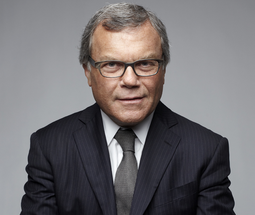How to avoid producing ‘gormless’ marketing graduates with irrelevant skills
As the debate about the value of marketing degrees rages on, Swinburne industry fellow Christopher Riquier puts his stake in the ground.
Both Gary Vee and Mark Ritson are short sighted in their views about marketing education. But they are also half right.
Like Gary Vee, I have no doubt that there are many talented and capable people out there that successfully lead marketing in an inherited or start-up business without formal education.
But likewise, supporting Mark Ritson’s point of view, in the corporate environment there is a need for vast numbers of people to fill marketing positions and not all organisations have the capability to provide hands-on training in the strategic or tactical aspects of marketing.
The ensuing debate on who is right and wrong could take time wasting to level 10. So why not use it to inform and overhaul university marketing education?
I was one of Byron Sharp’s first research students over 20 years ago, completing a Masters in Marketing while teaching undergrad marketing to put a roof over my head I finished 80% of a PhD. It was at this point I quickly became disillusioned, when I found myself teaching concepts of which I had no practical experience in implementing. Maybe the students thought I was credible, but at the time I didn’t.
So I jumped ship into the supposedly “inferior” corporate world as I was led to believe at the time. This turned out to be the best move I ever made and I ended up leading one of the larger WPP operating companies for Asia Pacific.
If Mark Ritson thinks doing some consulting and brand strategy work for a few corporates constitutes the true make or break experience you get in the field, think again. It might be valuable to inform strategy, but try many years of working under the leadership of Sir Martin in an environment where marketing performance is assessed 48 hours after the end of each month. That is the “real world” where I gained my true education.
My WPP experience and the work I conducted for start-ups right through to Fortune 500 groups was what I really needed to add value to a marketing student in the university system. Whether it be marketing our services, those of our clients or delivering a financial outcome for those clients or for Sir Martin.

WPP’s Sir Martin Sorrell
Thus it was timely when I got a call from some contacts at Swinburne Uni in Melbourne when I left WPP last year. Swinburne wanted help rebuilding their Masters of Marketing within the Australian Graduate School of Entrepreneurship (AGSE).
This rebuilding didn’t mean ‘get some textbooks written after 1985’. It meant working with major industry partners to rebuild subject curriculums with content that would be relevant for the type of graduates they hired. And to follow through, have the same partners actually deliver some of the content on a regular basis to students.
This was the sort of progressive teaching attitude I was looking for in a university, and it made me reflect on my frustration at the many gormless graduates with irrelevant skills we interviewed for my 3,000 strong team at WPP.
Initially I thought it would be challenging finding industry partners willing to give up their time to be involved in such a program. But to my delight within a short space of time Aus Post, Facebook, Isobar, JWT and many others had agreed to support the initiative. We are now working with them to build what we believe is Australia’s first industry co-created Masters of Marketing.

The cautionary note I would give to those recruiting grads today is that you can’t expect them to walk in the door, sit down and manage your programmatic buy on whatever platform you have in play.
What you should expect is that they understand the application and role of programmatic in the wider context of integrated comms and how marketing principles apply in this environment. Or how traditional market research has been replaced by decision tools built from multiple data sources including social, transaction, search, warehouses and even survey research.
And my advice for those completing degrees is to seek out industry experience throughout the course of your study. Applying knowledge at the time of learning is invaluable, let alone the ability to pump up your LinkedIn profile with some big names in industry.

Christopher Riquier is an industry fellow – entrepreneurship and innovation at the Swinburne University


He’s right.
Both Chuk and Ritson are right in their own way and for their own reasons.
The reasoning for either is based on their own individual – a sample of one – experiences.
Chuk says influencer marketing is over effective and underpriced. When I executed a campaign around the tactic in Malaysia, it was ineffective. In Dubai, it worked phenomenally. Chuk has a vested interest in Snapchat + Instagram and has a range of influencers signed on to the VaynerTalent. The tactic maybe effective but he has a lot vested into called influencer marketing effective.
Ritson is right for saying people should follow a 3-step process from research, strategy, to tactics for deployment. But he forgets that the market decides who is right and who is wrong. The market has decided that self-taught marketers will win. The market has proven that highly qualified marketers are not driving the commercial outcomes that their USD 100k degrees ought to help them produce.
An education is great. The ability to effectively apply it is even greater.
Meh… Working at WPP is still “consulting”.
Ritson and his clearly out of touch colleagues at Melbourne Business School just got ranked the third best business school IN THE WORLD for marketing by the Financial Times this morning. Above Wharton, Harvard, London Business School and every single school in Asia Pacific and Australia. Amazing considering how hopeless they are at industry application and how gormless their MBA students are.
Can’t quite see Swinburne’s business school anywhere to be seen on that Top100 list…
So sponsored rankings are the ultimate metric of success?
As much as I can see the benefit of this process I do worry that what will be produced is people already indoctrinated by Facebook (how long until Google puts it’s hand up), Technology providers (Adobe offering to write courses), a Supply Chain Partner (as really that’s all Aust Post is now via StarTrack) and agencies as to what platform, media, distributor and channel to use not what is best for the client and consumers.
I fail to see how any of these listed partners are going to bring anything but their own baggage to the table. If you are trained to see Social as Facebook only, Supply Chain (those of you with an MBA know this is a part of the requirement) as Aust Post and the Agency to be Dentsu or WPP (Isobar & JWT) then this is just a way for them to get a generation of people using them in the future.
It’s really not hard to teach people how different technologies and channels fit into the digital landscape, you don;t need courses written by these groups to do that. The main issue is it changes so fast that by the time many of these people have their degree Programmatic will be redundant and Social will have evolved again (as for many younger generations it already has from Facebook to private messaging and Snapchat).
This isn’t breaking the mould or taking the educational industry forward it’s just inviting the foxes into the henhouse…
well said